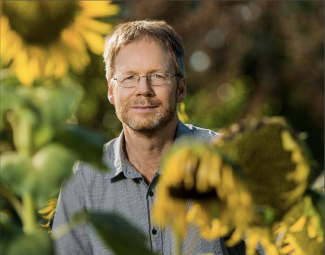Event
Revisiting the role of structural variation in plant adaptation, speciation, and improvement
Department of Biology Seminar Series
Loren Rieseberg

In plants, structural variants affect more base pairs than do single nucleotide polymorphisms and typically have outsized effects on phenotypic variation. However, only recently have we had the genomic tools needed to fully explore the impact of structural changes in wild and domesticated species. I will first discuss how large structural variants such as chromosomal inversions can aid environmental adaptation by suppressing recombination between locally favored mutations. I will illustrate this in wild sunflowers, where the colonization of extreme habitats such as sand dunes has been made possible by massive (up to 100 Mbp) non-recombining haplotype blocks (mainly cased by structural variants) that are associated with ecologically relevant developmental, physiological, and climate variation. This work has solved a longstanding evolutionary mystery of how some groups of organisms have been able to diversify in the face of rampant genetic exchange. Following my discussion of the role of structural variation in the diversification of natural populations, I will shift my focus to the origin and impacts of structural variants for crop improvement. Structural variants hamper plant and animal breeding because they impede recombination and introgression and can be the cause of hybrid inviability or sterility. Focusing on the cultivated sunflower gene pool, I will show that gene presence/absence variation – which affects 27% of the genes in the cultivated sunflower pan genome – is often associated with introgressions from wild species that were introduced by breeding programs. In many cases, genes are missing in the introgressed regions, which I suspect may explain why such introgressions often are deleterious. Missing genes and other structural variants can be complemented in hybrid crops, which offers a potential means for exploiting wild relative alleles for improvement without sacrificing productivity.
